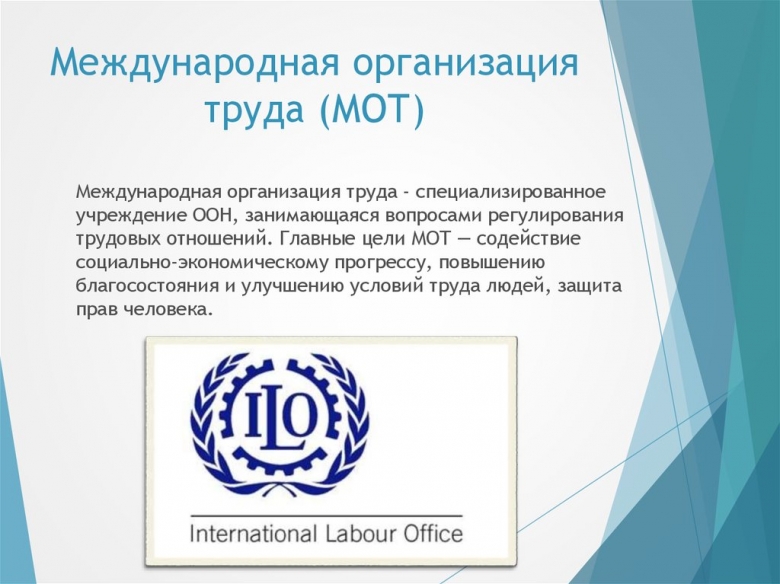
Global International Labor Organization Summit
Within the first days of June, the “COVID-19 and Labor Industry” International Labor Organization (ILO) Global Summit concluded online. Labor ministers, trade union and employer union Leaders from 187 countries-members-of-ILO discussed the challenges the countries have faced during the pandemic and their potential solutions.
Forum participants noted that this is the most massive medical, social and economical crisis since World War II. The pandemic has taken lives of over 570 000 people and over 13 million have been infected. National economies and the well-being of billions of people have harmed. Since this problem concerns the whole world, and this “enemy” of a sort is mutual, the countermeasures must be versatile.
According to ILO, measures taken by countries to stop the COVID-19 spread have interfered with over 80% of workers worldwide. Within the first half of 2020, working hours have been reduced by 10,7% compared to the last quarter of 2019. That’s equal to 305 million full-time jobs. Especially affected are the youth, women, homeworkers, disabled people, informal economy workers and, obviously, immigrants. As a result of the pandemic, negative factors like inequality, social, gender and national disparity have increased.
During their speeches at the summit, government representatives emphasized the importance of ways of protecting the economy and people from the pandemic consequences: supporting the unemployed and families with children, direct payouts to the citizens, requalifying the workers, covering the electricity bills for the remote workers, loans, credits, tax exemptions for businesses and others. Russia was represented by the Russian parliament chairman Mikhail Mishustin and labor and social security Minister Anton Kotyakov. During his speech, Mikhail Mishustin expressed his concern over all of the “progress achieved in decreasing the poverty levels and providing the populace with employment opportunities in the last few decades” are now in danger because of the pandemic.
On behalf of the businesses structures, summit participants notified the attendees of the measures taken to support their workers, healthcare systems and population at risk during the coronavirus outbreak. They also let the summit delegates know that, to minimize the negative economic consequences of the restrictive sanitary and epidemiologic measures, there has to be a flexible labor law, the contract part of which is to be strengthened by increasing the role of the individual and collective employment contracts and all the forms of agreements, to switch to a mixed form of employment and prioritize the timeliness of labor relations.
The trade union representatives unanimously stressed the importance of employee rights and their protection. Apart from the ever-present demands for consistent employment, sufficient salary, retirement security, extensive social security and safe work environment, urges to acknowledge COVID-19 as an occupational disease and accept the concept of remote work on a legal level have been voiced too.
For instance, the FNPR Chairman Mikhail Shmakov noted during his speech that besides the harm caused to the Russian economy the pandemic has also exposed the long overdue social and economical issues and suggested specifically targeting the workplace hygiene and security according to the ILO guideline no. 194, applying the social security measures to the self-employed and the informal economy workers, as well as adding COVID-19 to the list of occupational diseases.
To sum up the summit attendee speeches, four key elements to countering the crisis and its consequences have been proposed. These are: 1) Stimulating the economy and the employment, 2) supporting the organizations, jobs and incomes, 3) maintaining employee security, 4) prioritizing social dialogue.

